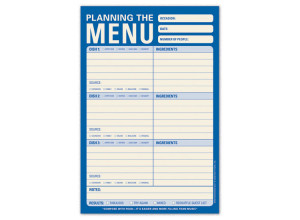Last week, I challenged you to “Dream Big” and make a list of your short-term and long-term financial goals in Step 2: Dream Big. Early in our marriage, the dreams we had of building our dream home and for me to be able to stay at home with our children one day were the big motivations for us to start off on the right foot. Today, our goals have shifted to building the wealth we will need for retirement and for educating our children.
A few years ago, we interviewed couples from our church who had been married 50 years or more when we began teaching a Young Couples Sunday School class to glean some wisdom. One of the ladies we spoke with told us a piece of advice her mother taught her when she got married. She said it was the husband’s job to provide for his family and the wife’s job to live on whatever amount the husband was able to provide. Now, before you react, I realize this is not politically correct in these modern times of dual wage earners and women’s rights, but don’t miss the truth to this statement. Making ends meet takes a balance of both earning enough income and managing it wisely.
Being able to stay at home and raise a family was a dream for me when we got married, so we also committed to always live on one salary. We would only live on the income my husband was able to provide albeit a new police officer’s fairly modest one and use my income to pay off debts and save to meet our goals. Does that mean I don’t think women should work? Of course not.
Statistics show that consumer savings decline as wages and the availability of consumer credit increase. The more the average family makes, the more debt they can service, and the more dependent the family becomes on both incomes. In other words, we start off earning more than ever before to provide more for our families but end up with less in a snare we have set for ourselves coined “The Two-Income Trap”.
Harvard Law Bankruptcy Professor Elizabeth Warren and her daughter, Amelia Warren Tyagi, MBA educated business consultant, wrote about this phenomenon in their book, “The Two-Income Trap, Why Middle Class Mothers & Fathers Are Going Broke (With Surprising Solutions That Will Change Our Children’s Futures).” The problem with this way of life, according to them, is that we lose the safety net of that extra income when the primary breadwinner experiences job loss or disability by becoming dependent on two incomes. Any unfortunate event such as divorce or death can also force the family into foreclosure or bankruptcy.
For us, the goal of building a new home motivated us to make some sacrifices for the first two years of our marriage. Living on one salary meant that our house payment, car payment, all of our utilities, groceries, and household needs would only be met using that salary. We did not eat out over once a month, and we did not buy clothing that first year with the exception of a $2 tank top that I remember buying on a clearance rack at Goody’s. One other time, I needed work clothes for a job interview, so Brett worked a Friday night security job and gave me the $100 he earned to purchase something for it.
Brett also served in the Kentucky National Guard at drills one weekend a month and for a two-week training period each summer. One thing that we would always allow ourselves was a vacation each year with the money from his two-week training since he took paid days off from the police department and this gave us extra money. Vacations have always been a reward for us for saving money each month, even when we just took a short trip in-state around our first anniversary to speed along our savings.
My entire salary went to pay off all of my premarital debt. We had paid all of it off within the first ten months and moved on to pay off the Jeep. After a year, I accepted a new job as the Internal Auditor at my hometown bank where I would continue working for the next eight and a half years. Picking up steam from the accomplishment of paying off all debts except our mortgage, we set our sights on building a new home on the land that Brett had purchased shortly after being hired on the police department.
As meddling well-wishers are prone to do, people began to ask us when we were going to have a baby. My husband’s response was, “when we have $30,000 in the bank.” That was the 20 percent down payment we would need to build our home and keep our mortgage payment low enough to pay from only his salary. We did not want to count on the equity from our first home as a down payment as it was in an older neighborhood and may not sell quickly. Working toward this goal together was incredibly team-building early in our marriage. It felt great to be accomplishing these goals together.
As our savings grew and we were on track to achieve our down-payment goal, we put our house on the market. We were open to an offer we received to rent it on a rent-to-own basis and moved into an adorable log cabin we rented from our Sunday school teachers in July 1999.
We initially planned to build a home to start our family in and then grow to build a dream house in the future. Brett had done some figuring and convinced me that we could afford to build our dream home first if we would wait on building a detached garage and finishing the basement, so we hired a contractor and got set to start. We took a celebration trip out west before starting a family and broke ground on our home when we returned.
Now it is your turn to focus on those goals you wrote down last week. What will you do to achieve them? The best way to turn your dreams into reality is to tell your money who’s boss! Create a spending plan by dividing your income into that from a primary source and any secondary income your family brings in. If there is just one wage earner, consider regular wage earnings separately from overtime and bonuses, tax refunds, or any other extra money you receive.
Next, take a look at that list of debts you compiled in Step 1: Know Your Condition and plan your attack using your secondary income.
Step 3: Create a Family Spending Plan
Giving – This one is in first place for good reason. By practicing generosity, we take the focus away from our own problems and see how blessed we truly are. Decide as a family what your goal is for giving, whether it is the Biblical teaching of 10% or another amount that you desire to give.
You may be questioning my sanity right now when comparing your stack of bills to the paycheck you are trying to stretch. If you aren’t where you want to be with giving today, I would encourage you to keep pressing forward to rid yourself of debt so that you don’t miss out on one of life’s greatest blessings.
Spending – Consider only that primary income when calculating your budget for regular living expenses.
- Housing – Your mortgage or rent payment is already determined. Plug this number in your budget first. Don’t forget to add a line item for Home Maintenance so you will be prepared when the furnace goes out or you find a water leak. I like to include a Home Décor budget as well to replace those worn out towels and keep things up-to-date. This limit keeps me from going crazy on all of those cute things I see for the home that I want every time I’m out.
- Transportation – Your car payment or amount you can expect to spend on maintenance and the average amount you spend on fuel.
- Utilities – Electricity, Water, Gas, Garbage Collection, Phone, Internet, Cable
- Taxes – Real Estate and Personal Property Taxes on your vehicles fall into this category. Consider making deposits into a savings account you use only as your own “Escrow” for taxes and insurance that are paid annually even if your mortgage lender doesn’t provide this service. Your income taxes should be automatically withheld unless you operate your own business. If you fall into this category, be sure to withhold a sufficient percentage from each receipt.
- Insurance – Homeowners and Vehicle Insurance may be saved for with your taxes in the “Escrow” savings account I suggested. You may need a separate line item for Health Insurance and Life/Disability Insurance if these are not provided by your employer.
- Groceries/Household Cleaning Products – Try to track your purchases from the big-box stores if you purchase other items there that should be in a different category. Wal-Mart and Target can be a black hole in your checkbook all too easily.
- Clothing – Don’t forget to include your dry cleaning expenses here.
- Healthcare/Prescriptions – Include all of your regularly taken medications and enough to pay an insurance copay each month. You may need to budget more in the months when your deductible has not yet been met. Don’t forget to add the cost of cigarettes to your budget if you are a smoker. This is a big expenditure that affects the wallet as well as the body.
- Grooming – Haircuts and makeup are necessities, so don’t forget to budget for them.
- Entertainment – This category includes movie tickets, ball game tickets, and anything else you do for fun. Our family also counts meals out in this category as we eat most of our meals at home.
- Exercise/Sports/Lessons – Gym memberships, children’s lessons, etc.
- Gifts – You will want to budget for big gift-giving times like Christmas or special family birthdays. Don’t forget to leave extra in your budget for graduations, weddings, and baby showers.
- Postage – I budget separately for postage because there have been times when I needed to send several packages as a military wife. If this is not a big category for you, you may want to include it in the miscellaneous category.
- School Expenses – I’m sure I’m not the only one who seems to be dispensing cash like an ATM for all of the fundraisers, t-shirts and field trips those little beauties bring in.
- Pet – Vet bills and pet food can be budget-busters if you haven’t included them in your family’s plan.
- Miscellaneous – I usually include office supplies, printer cartridges, and anything else that I don’t want to give part of my other budgets to during the month.
Does your primary income cover the list you just made of regular monthly living expenses? If not, don’t despair. You are in the company of the vast majority of American families. There is a better way to live, however. For now, determine how much income you will need from other sources to meet budget each month and strive to live within the parameters you set for yourself. Look for ways to cut expenses as you go, and don’t forget to celebrate each victory you achieve!
Saving/Debt Retirement
Try using your family’s secondary income to pay off all debts and to save for your family’s future. If your family’s primary income does not cover regular living expenses, how much does the secondary wage earner need to contribute? We always used my entire salary to attack one goal at a time to reach the financial goals we set for ourselves:
- Pay off student loans and credit cards
- Down payment on our new home
- Buy furniture and a riding mower
- Build a garage
- Buy a car
- Finish our basement
- Pay off our home
- Stay home with our kids
I can’t say enough about how rewarding it has been to accomplish each of these goals as a team. My life verse is John 10:10, where Jesus says “10 The thief comes only to steal and kill and destroy; I came that they may have life, and have it abundantly.” Friends, the peace I feel of not worrying about tomorrow financially feels more like abundance to me than any new outfit or trinket or new car we passed up along the way to find it.
Here are some ideas on what to purpose that second-income toward to find your own abundant life:
Child Care – Child care is the only expense in this category because it would not be necessary if there was a spouse at home.
Second Mortgage – We have always maintained a line of credit on our home to finance a limit of one goal at a time. This is how we built our garage, bought a car, and finished our basement. My entire income would then go to pay it off quickly.
Student Loans – Do not even get me started on the student loan epidemic in this country. Many of you are already in the government’s snares with student loan debt. If you are considering taking on student loans to pay for your children’s college education, I would urge you to look for other alternatives like beginning their general education requirements at a local community college or working as an apprentice to determine what they really want to major in before using that valuable tuition money towards a career they turn out to hate. Pay only what you are able to pay out-of-pocket. Have the student be the one to apply for student loans and therefore assume responsibility for using this credit wisely as a last resort. If they apply themselves and you are able, you can always help out with payments once they graduate.
Credit Cards and Consumer Credit – Consumer credit is your enemy! If you owe a balance on your credit card that you are unable to pay off each month, determine today to cut them up and never charge another thing unless you can maintain a zero balance. If you are in a place of financial discipline and can use credit cards wisely, consider a rewards card where you get cash back on gas, vacation stays, etc. on what you charge each month. We use a rewards card for all of our gasoline, travel expenses, and the occasional home maintenance project but always pay it off when the bill comes in.
Retirement Savings – Each wage earner must take advantage of employer-matching programs for retirement. The earlier you start, the less you have to save. Remember, these are pretax dollars. That means your paycheck will shrink by slightly less than the amount you have deducted.
Dedicated savings for a down payment on a home, vehicle replacement, vacation, and education – You will be surprised how the temptation to buy “stuff” diminishes as your savings increases. Someone asked me once if my husband buys me jewelry, and I replied that he would make me happier by leaving that money in the bank!
Long-Term Investments – Whether you contribute extra to your retirement account, invest in stocks and bonds, starting your own business, or invest in real estate, begin looking for ways to meet your family’s future needs.
Friends, my greatest desire is for you to find the contentment that the thief of debt comes to steal in our everyday lives and live the abundant life that Jesus offers by achieving your dreams as a family and gaining the freedom to bless others. We will begin looking for ways to save in each of the budget categories we set up this week as Finance Fridays continue.
Financial Principles
Live on one salary even if you earn two.
Always look at financial decisions through a long-term lens.















